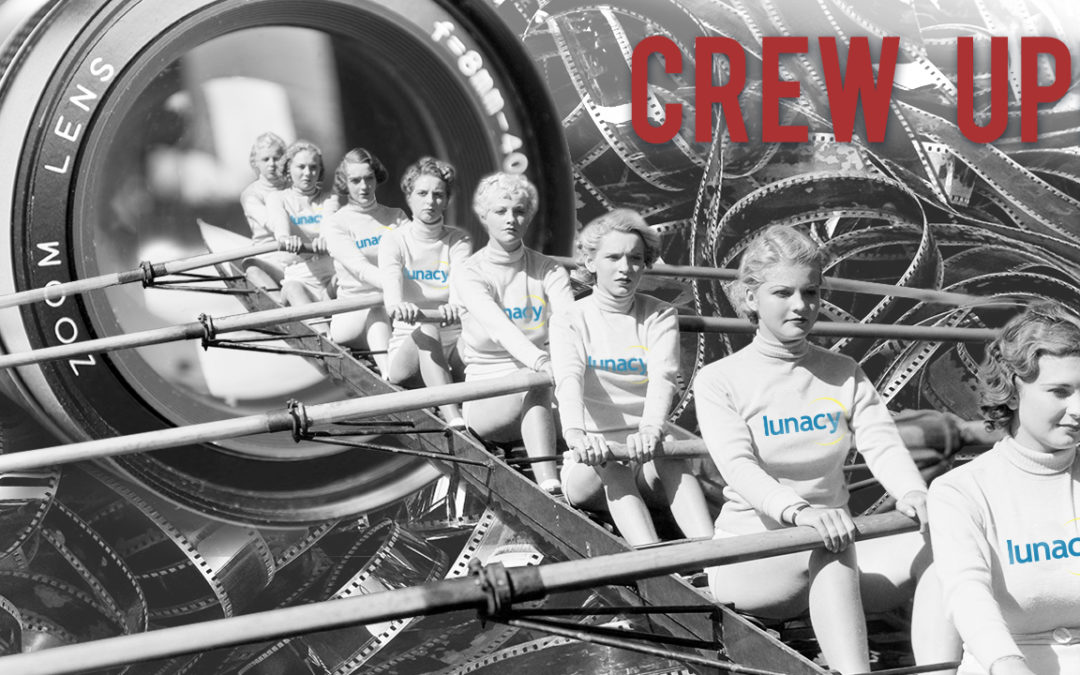Hiring your crew can be the most important decision you make as a producer. A dynamite team that is talented and motivated can elevate your material and make your job easy and fun. But bad attitudes are contagious. Taking on the wrong person, even in a minor role, can infect your whole set and drag everyone else down.
Ideally you’ll start your crew with an amazing Director and Unit Production Manager (UPM) who will have recommendations for above- and below-the-line crew, respectively. But the final decisions rests with you.
Here are five qualities to look for when hiring your crew:
1. Reputation
Because film is so collaborative, it’s hard to assign credit (or blame) accurately based on the final product. Your best hope of analyzing a prospective crew member’s talent, demeanor, work ethic, etc., is through their reputation among their peers. This is why producers tend to rehire people they’ve worked with before. They know firsthand what they are capable of.
But there’s a downside to crewing up entirely from your existing network. First, you miss an opportunity to expand your network and find new talent. It also tends to limit opportunities for women and people of color to break into an industry where the existing networks are overwhelmingly white and male.
There’s plenty of talent out there, so don’t be afraid to go find it! Just do your homework first. Ask for references and check in with former co-workers. Try to find some mutual acquaintances that might vouch for them (or warn you off!). Ask about your candidate’s strengths but also ask how they handle adversity, and try to determine if they will fit well with your team.
2. Collaboration
With all due respect to Robert Rodriguez, no one makes a movie alone. It takes a team, and a team needs team players. Uncompromising, lone-wolf types generally struggle to adapt to a film crew. You want to find people who are inspired, stimulated, and challenged by the creativity of others.
This can be a difficult thing to determine based on a resume and few face-to-face meetings, but pay attention to body language during any creative discussions. Are they actively listening to your ideas and contributions, or just waiting to talk? If you disagree on anything, do they shut down or are they energized by the debate? Their vision of the film doesn’t have to be the same as yours, but they have to be excited and willing to join your creative partnership.
3. Optimism
Making a movie can be fun, but not when you’re working with a Debbie Downer who mopes about every setback. Things never go exactly as planned. Your production will run into problems. And when it does, there won’t be time for self-pity. Your crew must be able to quickly adapt to challenges and find solutions.
Surround yourself with a team that views these inevitable roadblocks as opportunities for creative problem solving. You want people who say, “We can do it!” not, “It’s impossible.” Obviously, it’s important to be realistic, and you might run into problems that simply can’t be solved. That’s all the more reason to hire a group of people who won’t dwell on the disappointments, but will help remind you of all the great and exciting things that are working.
Challenges come fast and furious during production, but if you surround yourself with a team that can think on its feet and stay positive, it will make the whole process easier.
4. Communication
On set, communication is key. Two of the best attributes your crew members can have are the ability to clearly articulate their ideas and a willingness to listen to others. A film crew is often a large and diverse group of strangers, thrown into close quarters to work with relative autonomy towards a common goal. They each have individual jobs to do in order for the group to succeed, but if they are unable (or unwilling) to clearly communicate their goals and needs to each other, they don’t stand a chance.
It’s the job of the director to communicate their vision of the film to the crew. And it’s the producer’s job to make sure the lines of communication remain open between departments. But beyond that, it’s up to the individuals. Crew members who are reluctant to ask for the help they need, don’t fully understand what is expected of them, or aren’t attentive to the changes that arise during production, will inevitably drop the ball and make everyone else’s job harder.
5. Enthusiasm
Simply put, you don’t want to hire someone who doesn’t want to be there. Making movies is hard work. The hours are long, the expectations are high, and the compensation, particularly in independent film, is often underwhelming. So you’ve got to love the work.
When you’re crewing up, look for people who are making movies because they love the camaraderie of the set… because they love the sense of accomplishment you get when you see a great scene come together… because they love your project specifically and want to help make it a reality. Hire people who are making movies because they love making movies!
In the end, enthusiasm is the only reason most movies get made.


Thank you for explaining what you should look for when hiring your production crew. My sister has been thinking about making a movie. She would need a great team for that though.
Thank you for mentioning the importance of hiring a team that is willing to help solve problems in order to overcome any obstacles you may run into during a project. My brothers are thinking about creating a wildlife documentary for an upcoming film festival next year, and they need to find a film production company that will help them record what they need during poor weather conditions. Maybe they should find a professional company that can handle any problem that they may face.